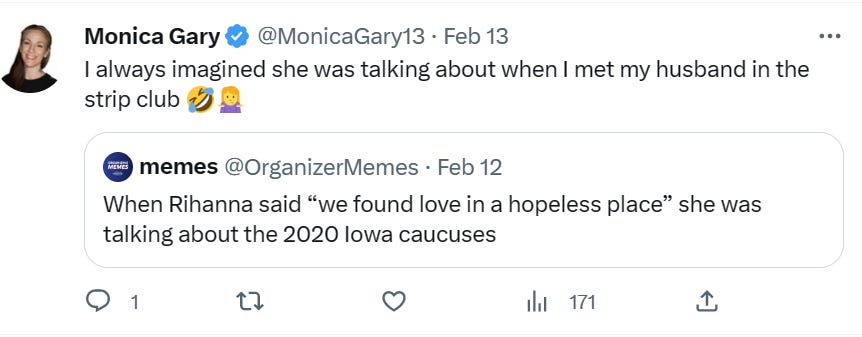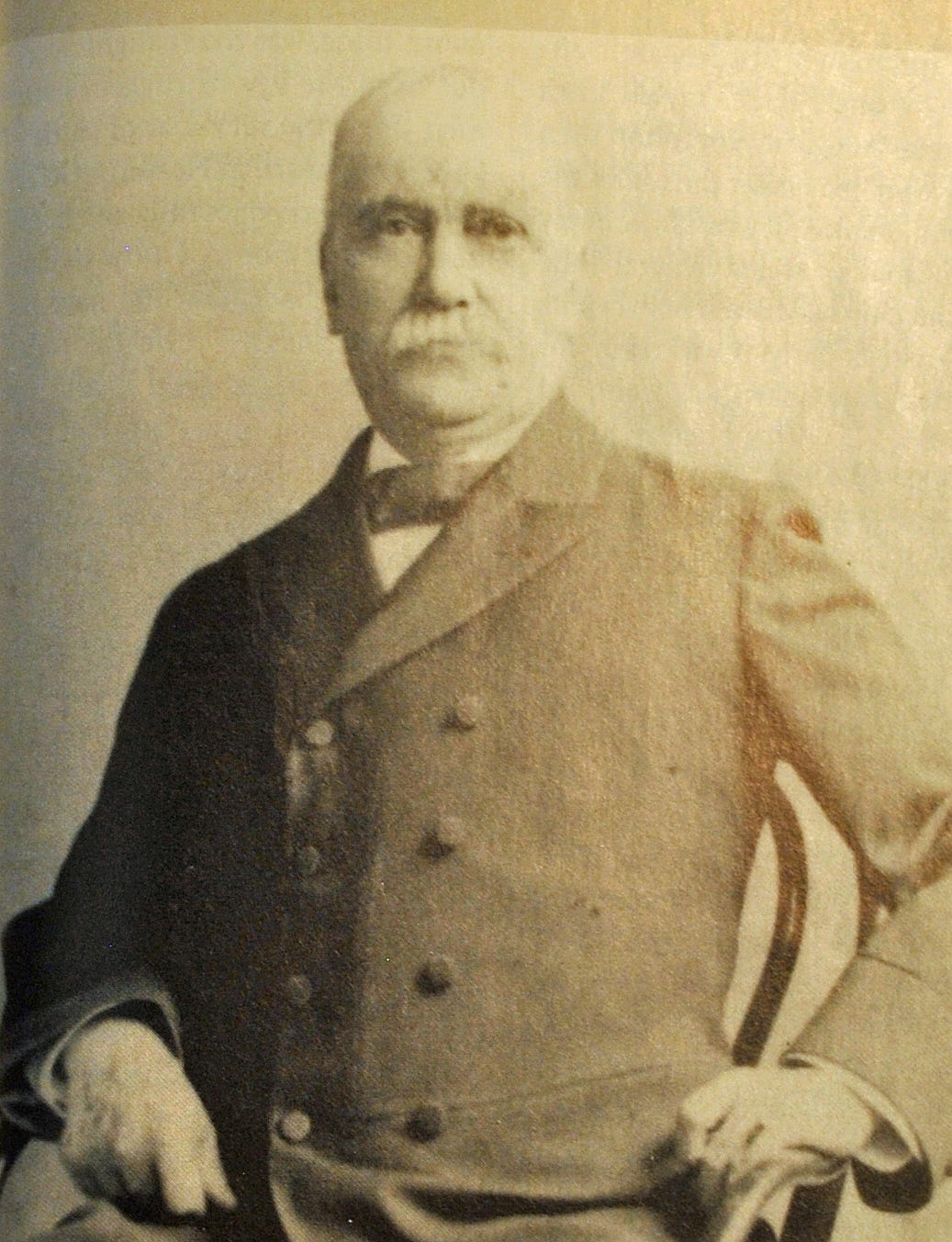Thursday February 16, 2023
FEATURE: SD-27 and populism | COMMENTARY: The "national nightmare" comes to Virginia | Publication Schedule
FEATURE: SD-27 may prove to be the battle of populists
by Martin Davis
While at the Free Lance-Star, I was beginning to write regularly about the upcoming race for Senate District 27. In particular, the way in which the conservative candidates in this race - Tara Durant in particular - would test the “Trump adjacent strategy” the Republican Party has adopted in dealing with Trump. In short - keep Trump’s extremist base of race-baiters and misogynists happy while working to not practice the same kind of scorched earth politics that Trump practiced.
Gov. Glenn Youngkin is the poster child for this strategy’s potential - he used it to perfection in his run for the Governor’s Mansion. He’s also an example of its failure - as governor, he has proven to be the same race-baiting misogynistic leader that Trump was. He just dresses better and is not as hard on the ear.
But in recent weeks, another way of looking at this state senate race is emerging - the battle of the populists.
On the (far) right, Matt Strickland is one populist running a Trumpian scorched-earth race. He has recently bragged about meeting Kari Lake, the Republican candidate for governor in Arizona who lost her race and then proceeded to lie, repeatedly, about “stolen” elections a la Donald Trump. And his campaign slogan is “crush the establishment,” Not a lot of nuanced (or any) thinking going on there.
A more interesting, and more thoughtful, populist movement is happening on the left.
In his pieces for F2S and the Free Lance-Star, Ben Litchfield has shown himself a fighter for working-class people who are being overrun by business leaders. Unlike Strickland, Litchfield is grounded in reason and pragmatism. He’s also quite knowledgeable of the working class life - he came from that world, as he explained in his piece “My party is poor people.” The depth of his thinking is evident from the positions he has staked out on his campaign page.
Litchfield, however, isn’t the only populist on the left. Monica Gary - currently a member of the Stafford County Board of Supervisors - is running a classic populist campaign.
She has a compelling personal story, and, like Litchfield, does not run from it. (See this piece about Gary’s career as a stripper on Fox 5.)
To borrow a phrase that has become popular in the business world among women, Gary “leans in” to her story.
Consider, for example, how she talks about meeting her husband:
That same approach applies to the way that she thinks about policy. Consider this tweet string she recently posted:
Our discussions over violence and guns are stuck in this country, a point made clear by Mother Jones Editor Mark Fullman in his excellent book Trigger Points. Gary has no interest in perpetuating our dysfunctional debate, but rather is stepping out of the two-party system that perpetuates this discussion to push for a solutions-base discussion grounded in real-world experience.
As such, she is hoping to tap into the frustration that people in our region who too often deal directly with violence. She is betting, and I suspect correctly, that these people are rarely, if ever, heard.
Gary doesn’t like the term “left” or “progressive” - she identifies as staunchly independent and is running as such.
Sociologists have long argued that there are no true political independents - and the ones that are truly independent are generally politically disengaged.
A new book, however - The Independent Voter - takes exception with this long-held view. It contends that independents - true independents - do exist. They have a wide range of political opinions, but they are united in their mistrust of the two-party partisan system, which they feel no longer serves most U.S. citizens.
That book could well have been talking about Gary.
Whether this approach can win elections remains to be seen.
But this much is sure - The SD 27 race will not only be a test of how much power Youngkin has with the Republican Party (not much, I suspect, as he won’t be able to control Strickland) and “Trump adjacent politics,” but it could prove to be the coming out part for independents in central Virginia.
COMMENTARY: The “national nightmare” comes to Virginia
By Jim Hall
When I think about Del. R.G.L. Paige at the Virginia General Assembly in 1880, I imagine his reaction to the hate directed at him. Paige probably wasn’t surprised, given all he had gone through. But he must have been discouraged, at least a little, to realize that his world was still a hostile place. Emancipation and changes in the law during Reconstruction had done little to make it better.
Paige, a Black man, represented Norfolk in the House of Delegates. Two Black men, “sons of the Sahara,” as he called them, had just been lynched, one in Amherst County and the other in Warrenton. Paige was alarmed.
Del. R.G.L. Paige
I learned of Paige and his adversary, Del. William H.F. Payne, while working on my new book. My focus was on Arthur Jordan, one of the two lynching victims Paige mentioned. But the argument between Paige and Payne that day in the assembly stood out to me as symbolic of the racial hostility common to much of Virginia’s history.
Jordan was condemned for love, as my book title says. He was 25, a farmhand in northern Fauquier County, when he began a romance with the 25-year-old daughter of his white employer. When she became pregnant, the couple fled. Family and friends of her father rode after them and kidnapped them in their new home in western Maryland. The riders returned with Jordan and placed him in the county jail in Warrenton. Four nights later a mob stormed the jail, dragged him to the Warrenton Cemetery and hanged him.
A former slave and later a successful lawyer, Paige wanted Gov. Frederick Holliday to get involved. He asked Holliday to post a reward, investigate the murders, and arrest those responsible.
“Within the present month, acts of lawlessness and violence have been perpetrated by mobs upon innocent citizens of this state,” he told the assembly. “The question is whether or not an armed mob can take without any signs of justice and hang the citizens of this Commonwealth, be they Black or white.”
Del. William H.F. Payne
Payne, his opponent, was a Confederate hero, a general in the war, and representative for Fauquier County in the assembly. He defended the mob’s actions, saying that Jordan, a married man, had repeatedly taken advantage of his white lover and forced her to flee with him. After considerable research, I came to believe just the opposite, that the couple’s relationship was clandestine but voluntary.
As for the lynching, Payne said, “When such as thing as this happens, I will turn my back and shut my eyes for a few minutes while the operations are going on.”
The assembly applauded, and Payne recommended that Paige’s motion be sent to committee, effectively killing it. All of the white delegates but one supported Payne, and all the Black delegates opposed him.
Racial terror lynching was not new in Virginia or the South when Jordan was murdered. But it had not become the “sport” that the NAACP would later call it. About a dozen Black men had been lynched in Virginia by 1880. Another 100 would follow in the coming decades.
Nationwide, more than 4,000 Black men, women and children were lynched in the U.S. during the 50-year lynching era, or about one each week. Paige was right to fear for the future. For Black people at least, lynching would soon become a national nightmare.
Jim Hall will talk about the Jordan case and other aspects of lynching on Wednesday, February 22, at 12:30 p.m. at Germanna Community College (Fredericksburg campus). His appearance is part of the college’s month-long Black History celebration. It is free and open to the public.
Hall is a resident of Fredericksburg and a former reporter and editor at the Free Lance-Star. He is the author of The Last Lynching in Northern Virginia: Seeking Truth at Rattlesnake Mountain (History Press, 2016). His new book, Condemned for Love in Old Virginia: The Lynching of Arthur Jordan, is due from History Press in July.
Publication Schedule
As noted in earlier editions, F2S guarantees publication on Monday and Thursday and now Sunday. We strive to deliver six days a week and are working to hire more people to help make that a reality. Your support - both as readers and donators - is greatly appreciated. - The Editor



